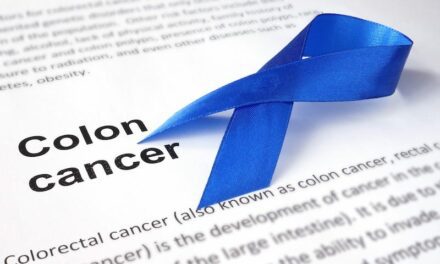Summary: Colorectal cancer screening offers a unique opportunity for early detection and intervention. However, a significant gap exists in ensuring timely follow-up with colonoscopy after a positive stool-based test, hindering the effectiveness of screening programs.
Takeaways:
- Positive results from stool-based colorectal cancer screening tests indicate the presence of abnormalities like polyps or cancer, necessitating prompt follow-up with colonoscopy. Addressing the gap in follow-up rates is crucial for reducing colorectal cancer incidence and mortality.
- Clinicians play a vital role in colorectal cancer screening, from ordering tests to providing recommendations based on results. Educating patients about the importance of follow-up and ensuring clear pathways for next steps can improve screening completion rates and patient outcomes.
- Implementing quality measures like colorectal cancer screening completion measures can help healthcare systems identify gaps in follow-up and implement strategies to address them.
Screening for colorectal cancer presents a unique opportunity unavailable for most other types of cancers. Screening allows for the detection of both precancerous polyps and cancer, enabling clinicians to intervene and reduce the chances of future development of new or more advanced malignancy. However, gaps in the colorectal screening process exist. One of the most critical gaps, according to an editorial published in JAMA Network Open, is the lack of timely follow-up with a colonoscopy after a positive stool-based test.
Follow Up for Colorectal Cancer Screening
A positive fecal immunochemical test (FIT) or multitarget stool DNA screening test requires follow up because these results suggest the presence of an abnormal growth such as a polyp or cancer. Improving follow-up rates with colonoscopy following positive results of these stool-based tests would decrease colorectal cancer incidence and deaths.
“If a stool-based test is negative, a follow-up screening test is recommended in a one-, or three-year interval depending on the type of test that was done. However, if a stool-based test is positive, regardless of the type of test that was done, a follow up colonoscopy is recommended. Follow-up should be as soon as possible. Studies show that in some settings, individuals who have positive stool tests often don’t follow up with a colonoscopy to determine whether they have cancer or polyps,” said editorial corresponding author Jennifer Maratt, M.D., M.S., of the Regenstrief Institute and Indiana University School of Medicine. “The gap is substantial with some centers reporting fewer than one in five patients having a follow up colonoscopy.”
Further Reading: How Effective are Blood Tests for Colorectal Cancer Screening?
“This gap in follow-up is the elephant in the room of cancer screening – something important we need to talk about, but often don’t. Screening with stool-based tests is a two-step process. Clinicians and healthcare systems can help improve screening completion rates by educating patients about what the screening pathways will look like when selecting invasive tests such as colonoscopy, or non-invasive tests, such as stool-based tests, and what positive and negative test results mean,” she says. “By using quality measures like the colorectal cancer screening completion measure, we will be able to capture data on screening completion when a two-step process is involved and have the opportunity to address this gap. For example, we could learn from high performing centers about processes they have in place to ensure timely follow-up.”
The Clinician’s Role in Stool-Based Screening
Although stool-based colorectal screening tests are typically self-administered in the patient’s home, clinicians are involved in the process. They order the test and typically provide it to the patient. Test results are sent to the clinician and the patient is then notified of the results and given a recommendation by their healthcare provider for next steps, if any, in the colorectal cancer screening process.
“Refining, testing and implementing two-step colorectal screening measures are important, necessary, and achievable goals,” says editorial co-author Thomas Imperiale, MD, of the Regenstrief Institute and IU School of Medicine. “Closing or even narrowing the post-positive stool test gap and getting these individuals in for colonoscopy is among the best use of this resource and is expected to reduce colorectal cancer incidence and mortality.”
Authors of “Closing a Gap in Colorectal Cancer Screening” and affiliations are Dr. Maratt(1,2,3); David A. Leiman, M.D., MSHP(4,5); and Dr. Imperiale(1,2,3).
- Indiana University School of Medicine, Indianapolis, IN
- Richard L. Roudebush VA Medical Center, Indianapolis, IN
- Regenstrief Institute, Inc. Indianapolis, IN
- Division of Gastroenterology, Duke University School of Medicine, Durham, NC
- Duke Clinical Research Institute, Durham, NC





